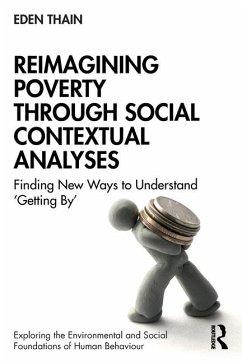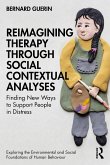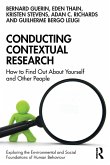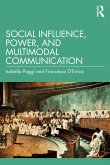This book is the first of its kind to apply social contextual analysis to the issue of poverty. It sets out detailed accounts of poverty based on original research and shows how understanding life contexts can give us a deeper understanding of the issue.
The book highlights detailed life contexts from a project exploring the everyday experience of poverty, including what poverty is and what psychology has to say about poverty. It showcases work from an original study in Australia that uses on-the-ground participatory interview research, integrating this with international literature to provide a comprehensive analysis of poverty. The chapters explore the complexity, and often the simplistic reductions used in answering questions that try to define poverty, the psychological understanding of the phenomena, how individuals experience it, and the general opinion of the status-quo regarding poverty. However, most importantly the book tries to investigate why we have not solved poverty in modern, capitalist life, and sets out recommendations for research, practice, and policy in addressing issues of poverty.
Showing the need for rigorous and on-the-ground approaches to addressing poverty and its many complications, the book will be highly relevant to students and researchers in the fields of social psychology, critical psychology, community psychology, social work, and social policy. It will also be relevant for anyone interested in the application of social psychological research techniques to the understanding and intervention of social issues, by showing pathways to better explore and understand human behaviour.
The book highlights detailed life contexts from a project exploring the everyday experience of poverty, including what poverty is and what psychology has to say about poverty. It showcases work from an original study in Australia that uses on-the-ground participatory interview research, integrating this with international literature to provide a comprehensive analysis of poverty. The chapters explore the complexity, and often the simplistic reductions used in answering questions that try to define poverty, the psychological understanding of the phenomena, how individuals experience it, and the general opinion of the status-quo regarding poverty. However, most importantly the book tries to investigate why we have not solved poverty in modern, capitalist life, and sets out recommendations for research, practice, and policy in addressing issues of poverty.
Showing the need for rigorous and on-the-ground approaches to addressing poverty and its many complications, the book will be highly relevant to students and researchers in the fields of social psychology, critical psychology, community psychology, social work, and social policy. It will also be relevant for anyone interested in the application of social psychological research techniques to the understanding and intervention of social issues, by showing pathways to better explore and understand human behaviour.









